
A Little Change for The Diapers, A Big Change for The World | Eco Boom Baby Bamboo Diapers and Wipes Manufacturer
A Little Change for The Diapers, A Big Change for The World | Eco Boom Baby Bamboo Diapers and Wipes Manufacturer
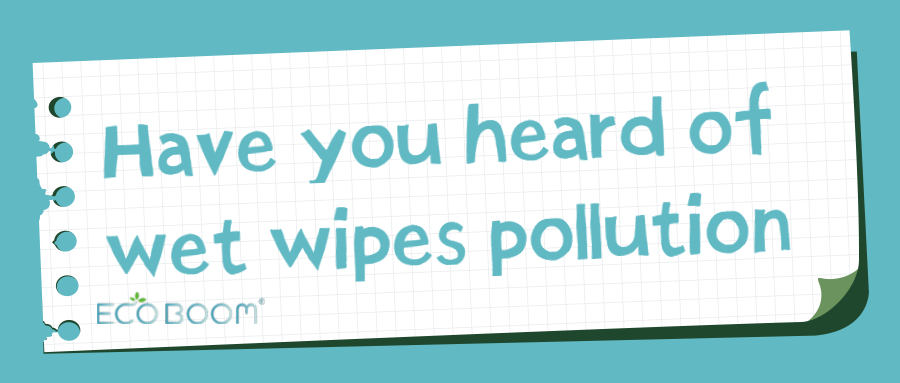
Surprisingly, disposable wipes are posing multiple threats: they pollute our environment, they damage sewer systems and they end up being very costly for citizens’ pockets.
Should we then reconsider the way we use them?
What exactly is the problem with wet wipes?
Most wet wipes look like they are made of cotton—— they are white, soft, and absorbent. However, most of them are made of polyester and polypropylene. In fact, nearly all of them are pieces of non-woven fabric which resemble cloth or cotton qualities. The vast majority of consumers do not know that ordinary wet wipes are disposable plastic products.
Today let’s talk about the wet wipe pollution.
What exactly is wet wipe pollution?
Wet wipes pollution, as the name implies, is environmental pollution caused by the accumulation of various wet wipes. Wet wipes are different from the paper towels we usually use.
The toilet paper we put in the toilet is made of cotton pulp, wood pulp, straw pulp, sugarcane pulp, mixed pulp, and waste paper pulp, and is made extremely thin, in order to make it meet When the water is reached, it will rot, and part of it will even dissolve in the water and will not block the sewer pipe. The wet wipes seem to be an improvement of the old toilet paper,
but they will cause many problems to the sewer system.
There are even studies showing that the pollution of wet wipes is changing the shape of the Thames river bed in the UK. The environmental organization Thames 21 once recovered 5453 wet wipes on the 116 square meter Thames embankment near Hammersmith.
Many brands of wet wipes add plastic to make wet wipes more flexible, which means that it cannot be completely degraded. Over time, they will become microplastics. If it eventually flows to the sea, it will become "PM2.5" in the ocean, posing a great threat to marine life. Microplastics are often swallowed by marine organisms, including fish and seafood, and they may eventually be eaten by humans. These indigestible small particles cause unpredictable harm to humans.
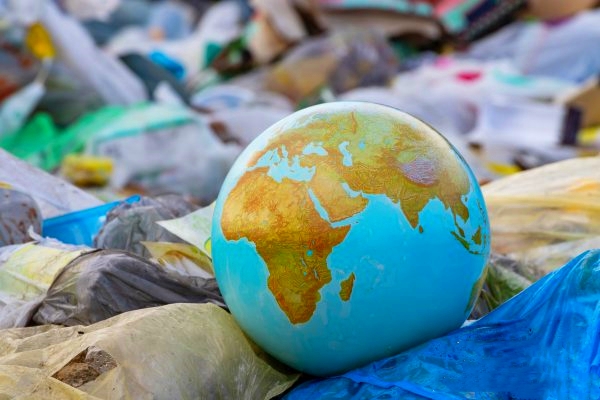
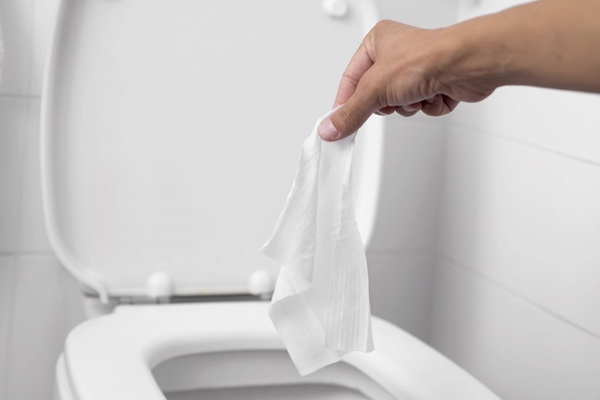
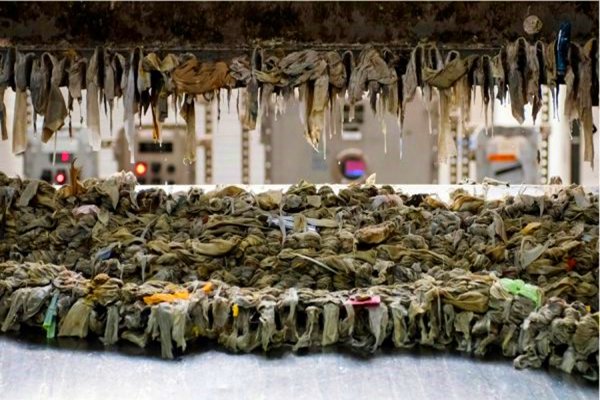
Poses a serious threat to sewers
Wet wipes are being flushed down our toilets increasingly since the use of personal wipes expanded from babies to adults. The first occurring problem from this practice is that all these plastic wipes break down in small pieces and eventually end up in local sewer systems. “People might think that it’s OK to just pour a little bit of oil down their sink or to flush a couple of wipes during the day, but when you have 5 million people in a city [doing this] collectively, that will cause a major problem,” says Peter Hadfield from Sydney Waters.
What’s happening is that when flushed down our toilets, wet wipes meet and unite with fats & grease and ultimately form a fatberg. Fatbergs, as Hadfield explains in Guardian Australia,
“are a really entangled mess of plastics mortared together by the fats, oils, and grease that creates this rock-hard material and creates a really big problem with blockages in pipes.”
This mix of plastic wipes with fats and oils creates a mass that doesn’t easily break up which causes significant damage to sewer systems. According to Water UK’s director, Rae Stewart,
sewer blockages cost £100million a year only in the UK!
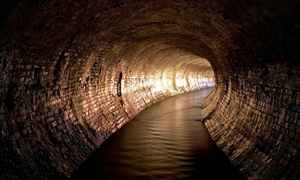
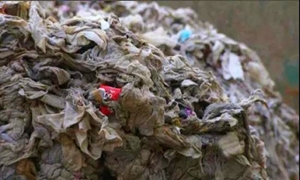
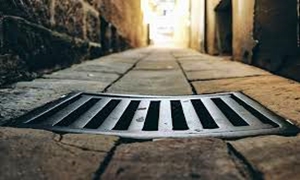
The most worrying thing is that people do not pay much attention to the pollution of wet wipes as much as they pay attention to “white pollution”.
Most people's consciousness is still on the level of "wet wipes and toilet paper". Treating this high pollution level no less than plastic products is like treating degradable paper towels at will. Discard it at will, landfill it at will, and dispose of it at will.
And disposable wipes indeed provide a lot of convenience for daily life. It can wipe sticky hands, face, nose, or other dirt on the body. It doesn't need to be cleaned like a towel, and it doesn't even fall off like a paper towel.
INDA is the American Non-woven Industry Association, providing information, publicity and advice to member companies operating in the non-woven and engineered fabric industries.
An INDA spokesperson, on behalf of INDA President Dave Rouss, said: "Consumers’ preference for wet wipes is affected by many factors: convenience, price, quality and sustainability.
New materials that are cleaner, softer, and easier to recycle are the key ."
So, how should brands provide consumers with what they want-to prevent microbial contamination, achieve quick cleaning and easy portability, while reducing the impact on the environment.
Biodegradable product innovation
Although wet wipes are convenient to use, the impact of used wipes on the environment is always present——especially now that disposable plastics are being subject to global government regulations.
A key theme at the 13th World of Wipes (WOW) International Conference (June 24-27 in Atlanta, Georgia) is "Healthier and Safer" The increase in demand for more environmentally friendly wipes has promoted new progress."
ECO BOOM Bamboo Biodegradable Wet Wipes
Our ECO BOOM bamboo wet wipe is made of 100% bamboo fiber so that it can 100% biodegradable. The cellulose fiber extracted from naturally grown bamboo is used as the raw material. It not only has good air permeability and instant water absorption. With high abrasion resistance, it can provide five-star soft care for the baby’s skin, and it can also be degraded naturally in nature to avoid the pollution of wet wipes and harm our daily life.
——Fresh & Moist & Unscented: It’s an unscented and 99.5% R.O. water formula and can be directly used for the baby’s skin.
——Pure & Safe Structure: Fragrance-free. No toxic and heavy metals used in production.
——0% Perfume: Our wipes do not contain any fragrance. Not only wipes the baby's bottom, but also gently cleans hands and face.
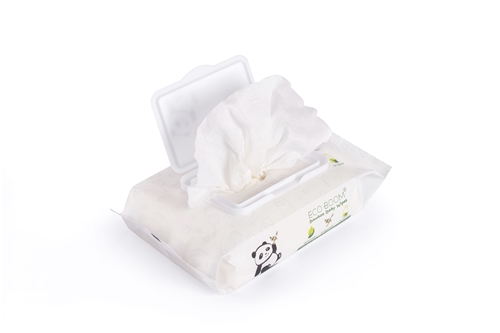
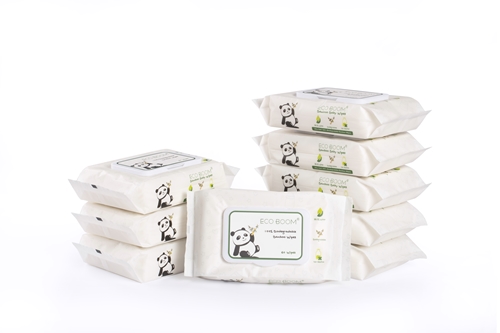
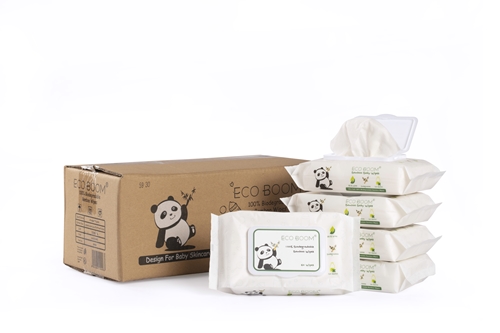
Kind reminder: Please dispose of packaging thoughtfully and do not flush down the toilet.
Gentle on your baby’s skin, gentle on the planet. This has always been ECO BOOM environmental protection philosophy.
Help us be a part of the solution, not part of the pollution. Let us use ECO BOOM biodegradable wipes together (o^^o)
Copyright © 2019 XIAMEN MK HEALTH CARE PRODUCT CO., LTD . | All Rights Reserved
We are here to help you! If you close the chatbox, you will automatically receive a response from us via email. Please be sure to leave your contact details so that we can better assist